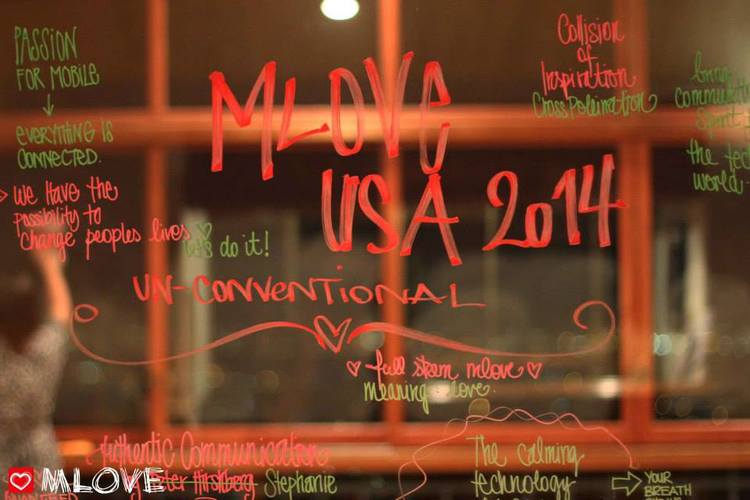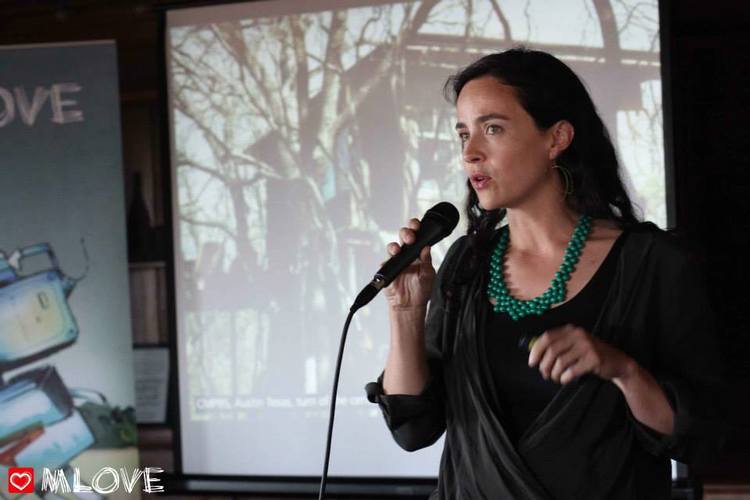MLOVE Un-Conventional: Our Smart Future
The Future is smart, according to MLOVE Un-Conventional
Innovators, entrepreneurs, and executives converged on October 5, 2014 at the gorgeous Fogarty Winery in Woodside, CA to discuss the future of technology, mobility, and brands.
MLOVE Un-Conventional is an intimate US spin-off of the MLOVE ConFestival, which takes place in a castle south of Berlin every summer. Coined “TED for Mobile”, the organizers say:
“MLOVE events bring together CEO’s, innovators, and start-up entrepreneurs from across multiple disciplines to share, learn and cross-pollinate ideas with an array of scientists, artist and international thought leaders.”
While the themes of the event were broad, spanning the Internet of Things to the Maker Movement, many threads wove the one-day event event together with one solid message: the future of technology is open, collaborative, and smarter than ever.
John Baekelmans, CTO of Cisco’s IoE (Internet of Everything) Solutions Group argued there was a need to change business models early and often to keep innovating. With companies beginning to disrupt major industries, like Airbnb to the hotel industry and Uber to the taxi industry, traditional enterprises need to stay on its toes. Even the auto industry is taking a hit from manufacturers likeTesla, and the continued successful tests of self-driving cars. “We’re building vehicles that drive smarter”, said Singularity University’s Networks & Computing Chair, Brad Templeton, noting that, on average, more Americans die per annum in accidents than in war (40% from intoxication and 80% from inattention).
Current disruptive technology, particularly in urban areas, suffer from a power struggle between technology, legislation, and communities, rather than focusing on shared goals. Greg Delaune, founder of the Urban Innovation Exchange said he believed cities represented massive opportunities for adaptive technology, and the sharing of ideas and resources.
Peter Hirshberg, founder of the Re:Imagine Group echoed that sentiment, sharing a relevant success story about the cooperative nature of Burning Man, the temporary city in the sand that continues to scale at an incredible rate. Other resource-sharing companies and collaborative spaces like Freespace,too, show fledgling programs leveraging technology to create lasting change gaining overwhelming support.
Dawn Danby, Sustainability Program Director at Autodesk
Both Delaune and Bennet Grassano (Senior Development Director at Kiva), however, noted the need to engage more globally in order to help people reach basic survival before self-actualization.
Delaune pointed to the staggering statistic that some 2.6 million people still lack for basic sanitation, and over 3 million still cook over open fires. Grassano added that Kiva’s goal of eliminating global poverty has had great success, with over one-third of Kenya’s economy using micro financing.
So how to create these disruptive global solutions? Be a part of the maker movement, according to Dawn Danby (Sustainability Program Director at Autodesk) and Dr. Mike North (Founder ofReAllocate). From 3D printed prosthetics to mind-controlled cockroaches, both Danby and North argued that open, sustainable design and empowering people to make things would drive the next industrial revolution.
MLOVE continues to put on inspiring events for innovators across multiple disciplines, and its expert speakers show the global trends in technology innovation. For more information about MLOVE and their future events, you can visit their website or follow them on Twitter.
Text by Madelynn Martiniere, director with FTI TMT: A community engineer and marketing/branding specialist with a major network, she has extensive experience with the maker movement, hardware companies, and crowd funding. She has built sustainable communities for large technology brands and startups alike.
Original post published first on FTI TMT web site here.































